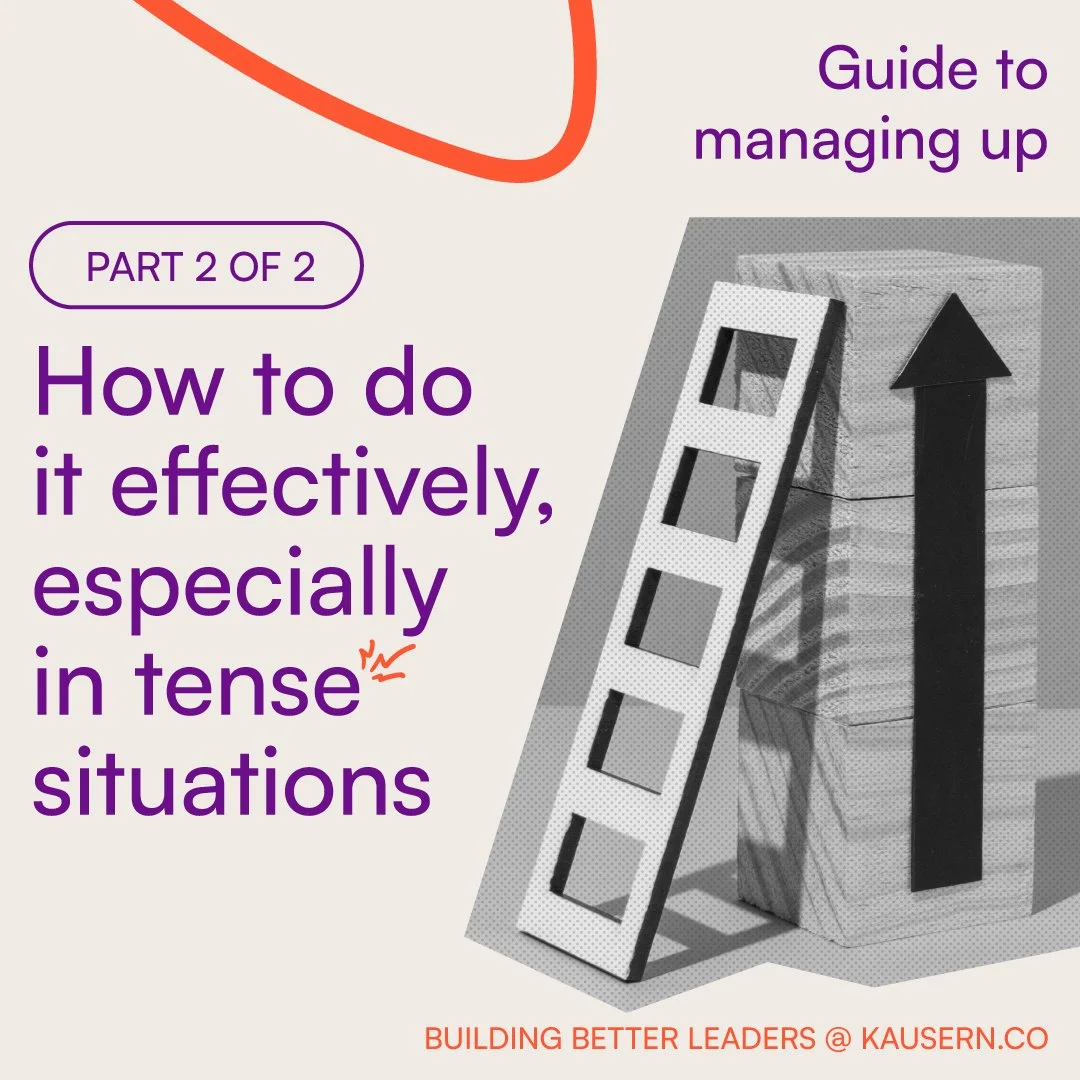Guide to managing up (Part 2 of 2): How to do it effectively, especially in tense situations
Managing up in tense situations isn't always easy, but mastering it strengthens work relationships and leads to better outcomes.
Here's a step-by-step guide to approaching these moments with the right mindset:
1. Adopt a Problem-Solver Mindset
Managing up focuses on supporting the relationship to achieve a shared goal - like solving a business problem. The relationship is the means to an end, not the end goal itself. For e.g. In tight deadlines, instead of just reporting the problem to your boss, think, “How can I help solve this?” and be ready to present solutions.
2. Understand Your Boss’s Stressors and Priorities
Recognize that your boss likely faces stress as well. Assess how the issue impacts their goals. This empathy-driven approach shows you’re there to support their objectives, not just highlight problems.
3. Communicate with Clarity and Confidence
Start with a brief overview of the issue, suggest solutions, and reaffirm your commitment to a positive outsome. For example:
“I want to discuss an issue with the upcoming project deadline. Here’s an overview of what’s happening, along with a couple of potential solutions. I believe these adjustments can help us meet the main deliverables.”
4. Stay Solution-Focused, Not Blame-Focused
In high-tension moments, avoid assigning blame and steer the conversation toward solutions. Instead of referencing past mistakes, try, “We’re currently behind schedule. Here’s what we can do to get back on track.”
5. Maintain Boundaries, but Be Flexible
Managing up is about collaboration, not sacrificing boundaries. Set realistic limits but offer flexibility and alternatives where possible. Negotiate if needed.
6. Stay Composed and Resilient
Remain calm. Avoid reacting impulsively. If your boss is visibly stressed, listen actively and avoid interrupting. Your calm presence can set a productive tone.
Remember, we have more control than we often realize; by taking responsibility for our mindset and actions, we can avoid slipping into a victim mindset and instead contribute positively to the relationship.
If you're hesitant about these meetings, I encourage you to start scheduling your first check-in. Your people deserve to be heard, empowered, and supported.

